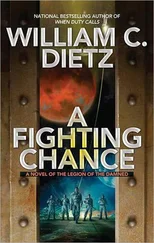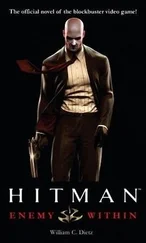At Voss’s signal, the riders spurred their horses into the maze. As they passed each dwelling, they leaned in to touch it, like priests blessing the homes, but with fire rather than holy water. Most went up in flames.
Not all the huts surrendered so easily, however. Some were stubborn and refused to catch fire. Whenever that occurred, a mercenary would light a firebomb and toss it through an opening, resulting in a splash of fire. It rarely took two.
Confident that the reclamation project was on track, Voss led his bodyguards north past the long line of people who were about to become his responsibility. Was this the way it felt to be a nobleman back in the Middle Ages? Yes, Voss thought it was, and remembered the saying “What’s old is new again.” Not only new, but to his mind exhilarating, because while much had been lost in the wake of the war, a great deal had been gained, primary among which was personal freedom. Voss smiled, urged Odin to a gallop, and took pleasure in the feel of it. The year was 2066. But it could have been 1266. And that was fine with him.
The fortified manor house sat atop a hill and could be seen from the highway. That was no accident. Hills were easier to defend, and each passerby would not only see it, but also think of him. A twisting, turning road led up through beautifully landscaped slopes past artfully disguised machine-gun emplacements to a carefully groomed courtyard where uniformed slaves were waiting to receive him.
It was important to maintain the right mix of workers and slaves. The advantage to using hired help was that they had a reason to guard the status quo, to think of ways to improve things, and to come up with innovations. But slaves could produce food for less and, so long as they existed, gave the workers a reason to feel superior, all of which contributed to social stability and therefore to profits.
Voss slid to the ground and gave the reins to a slave boy, knowing that the horse would be well taken care of. Spurs rattled as Voss crossed the well-packed gravel to the house. It consisted of a conical watchtower sited next to a two-story house with a multiplicity of chimneys and staggered roofs. The two-foot-thick walls were made of stone. They were pierced by windows and rifle slits, which were currently plugged against the cold.
A massive metal-strapped door swung open before Voss could touch it. Once inside the huge entry hall, Voss went to sit on one of two throne-like chairs that were positioned to either side of a welcoming fireplace. A house slave hurried to remove his filthy boots while a second gave him a mug of coffee—a fantastically expensive brew derived from Mexican beans brought north by caravan. It was hot, slightly sweetened with sugar made from his own sugar beets, and diluted with a dollop of cream produced by a Voss-owned dairy farm.
No sooner was the ritual completed than a small formally dressed man appeared. He had slicked-down hair, a pair of thick glasses, and a stern demeanor. His name was Elmer Trenton and he was many things, including Voss’s personal secretary, confidant, and adviser. “There you are,” Trenton said, exhibiting none of the deference that most people did. “Charlie Winthrop is waiting in your study.”
“Excellent,” Voss replied, as a footman slid some handmade moccasins onto his feet. “It’s about time. Let’s see what the rascal has to say.”
Voss led Trenton into the wood-paneled study. One wall was taken up with floor-to-ceiling bookshelves. Another was dedicated to a large fireplace, and a bay window looked southwest across tidy slopes to the highway below. Smoke could be seen in the distance as riders escorted a long line of men, women, and children north. Winthrop was seated next to the huge desk. He stood as Voss entered the room. “It’s good to see you,” Voss said as he shook the other man’s hand. “How’s Blue?”
“Ornery as ever.”
“Good. Would you like a cigar?”
Winthrop eyed the box greedily. “Don’t mind if I do.”
“Take a fistful,” Voss said. “They’re from an island called Cuba. Each one of them is worth a box of .45s.”
Winthrop hurried to accept the invitation, and after sticking four cigars in an inside pocket, bit the end off a fifth and spit it onto the floor. Voss smiled indulgently as he leaned forward to provide Winthrop with a light. Once the cigar was drawing properly, Voss smiled. “So, Charlie, what have you got for me?“
“Well,” Charlie began, “I went down past Kemmerer just like you told me to. The good news is that outside of the usual patrols, I didn’t see anything that could be described as a major troop movement.”
Voss made a steeple with his fingers. “And the bad news?”
Charlie released a stream of pungent blue-black smoke. “The bad news is that there’s a lot of territory I didn’t see. Couldn’t see without getting my ass shot off. Hashi has established a number of no-go zones since the last time I was down that way. And the locals tell me that her people don’t take prisoners.”
Voss considered that. Haya Hashi was a tech lord by virtue of the fact that she controlled the wind turbines located outside Evanston, Wyoming. And since Voss’s solar farms weren’t able to produce enough electricity to meet his needs, he was forced to buy power from Hashi—and it was expensive. Up to twenty percent of the nonperishable food Voss Enterprises produced was shipped south each month, and the bandits knew that. So although his mercenaries were able to protect most of the caravans most of the time, there were losses—losses he had to make up.
That was bad enough, but six days earlier, an emissary had arrived carrying a letter from Hashi. It was replete with all sorts of flowery crap, but the so-what was clear. The bitch was raising her prices again . That left Voss with two choices. Pay, or invade Hashi’s wind-generated empire and take over. He preferred the second alternative and had prepared for it. But what if the price increase was part of an elaborate plan to lure him out of the Star Valley? What if Hashi wanted war—and wanted to fight it on her ground? Such was the dilemma that faced him. “Okay,” Voss said, “there were places you couldn’t go—and things you couldn’t see. But what’s your guess? Is Hashi preparing for war?”
Charlie took in some smoke, held it for a second or two, and blew a perfect ring. The halo lost its shape before it could reach Voss. “I’d rather not guess. But if I have to, I’d say it’s business as usual down in Hashi-land. Rumor has it that she’s butt deep in an effort to construct more wind machines.”
“That could explain why she raised her prices,” Trenton said, speaking for the first time. He was standing in front of the fireplace with both hands behind his back.
Voss nodded. Hashi would need gold for something like that—gold she could bring in by selling some of the food he sent her. “Thank you, Charlie. Stay in touch. Trenton will take care of your pay.”
Winthrop had been dismissed and knew it. He rose and said, “Thank you, Mr. Voss,” and Trenton led him out into the hall. A cloud of smoke remained behind as the door closed after them. Snow had begun to fall beyond the window. An omen, perhaps? And, if so, what did it mean? There was one person who might know, but she hated him. Voss smiled. Dinner would be interesting.
Voss had a lot to do, not the least of which was to make sure that his mercenaries were ready to leave on six hours’ notice. And that was a complicated matter because they were mercenaries—and mercenaries couldn’t be trusted. Making the situation even more complex was the fact that the mercenaries were paid with the very thing required to fight, and that was ammunition. Give them too little and a critical battle could be lost. Issue too much and they would take their riches and run. But by insisting that that his soldiers take wives, he could hold their families hostage. It was an effective policy for the most part, but only if he enforced the rules.
Читать дальше












